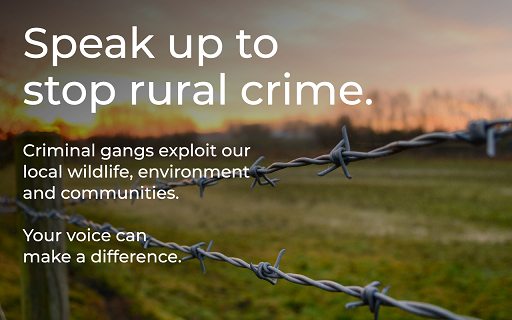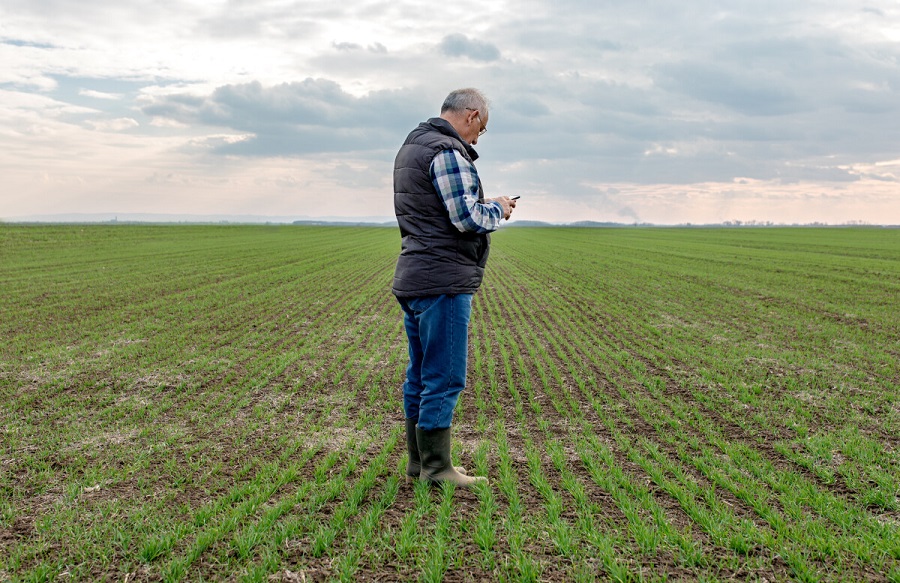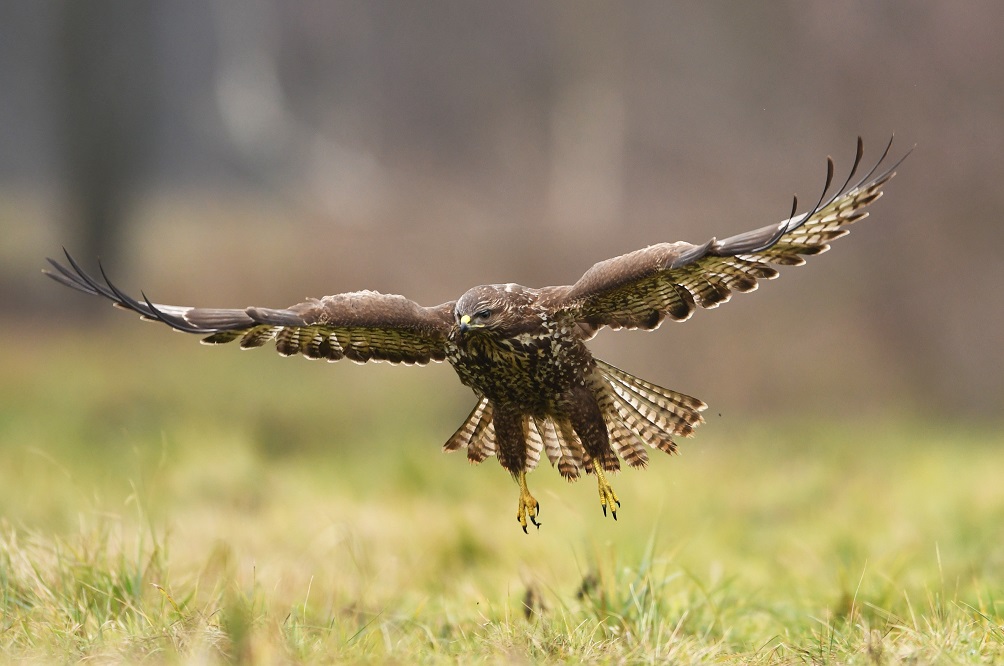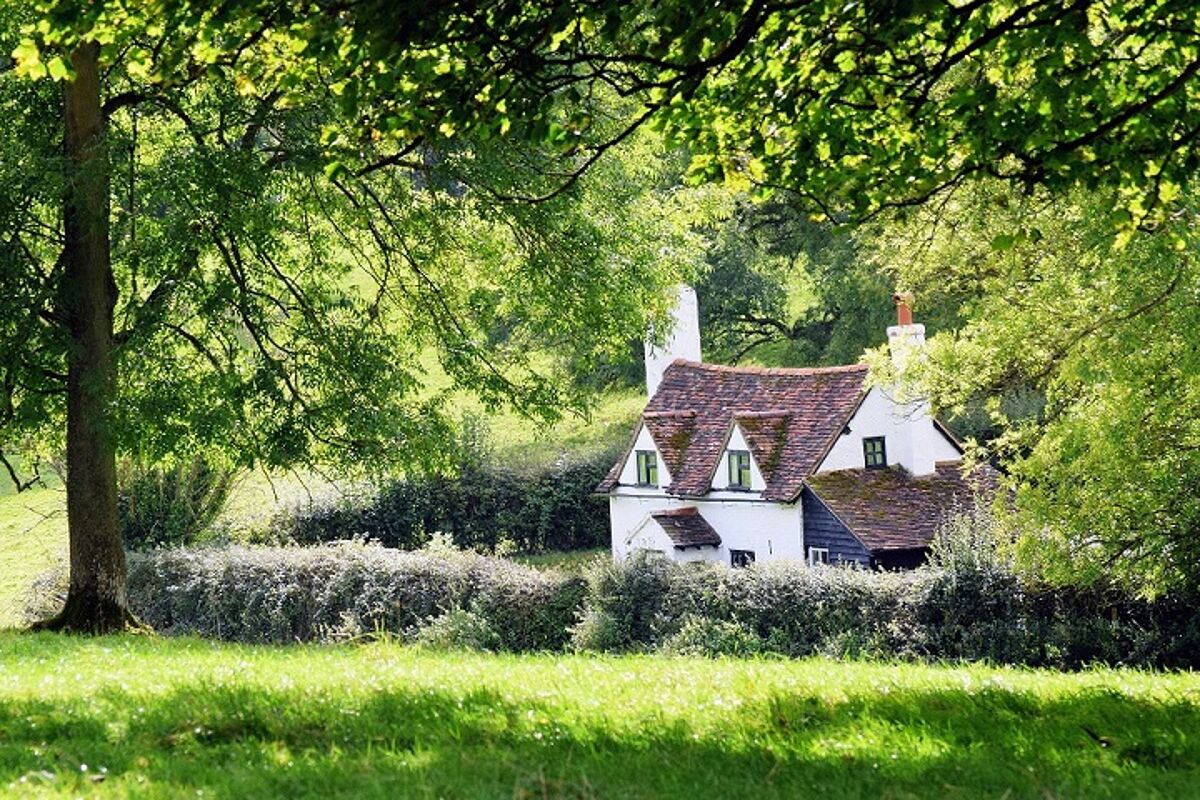Rural crime 2023
We're working to help raise the profile of rural crime. We want people to know what it is, why it’s a problem & what you can do to help stop it.

We’re focusing on the following issues, all of which affect rural communities:
- The protection of wildlife
- Environmental crime
- Domestic abuse
- Violence against women and girls
Additionally, theft remains a major concerning issue in the agricultural sector, affecting many farmers who have unfortunately experienced the theft of farm machinery, vehicles, GPS units, livestock, horses or fuel.
Rural thieves have evolved beyond opportunistic local individuals. Increasingly in recent years, organised and sometimes international criminal gangs are in control of criminal activities, with global events and emerging illicit markets further fuelling the demand for stolen equipment.
The issue of rural crime takes a toll on both the lives and livelihoods of farming families, with many feeling vulnerable knowing that their homes and workplaces are under surveillance by criminals.

Rural crime impacts rural residents emotionally, and it hits their pockets too - according to NFU Mutual's 2023 Rural Crime Report, rural crime in the UK rose by 22.1% last year and cost an estimated £49.5m.
Speak up to stop rural crime.
If you have information and want to remain anonymous, you can tell us online, here on our website, or on the phone by calling 0800 555 111.
Protecting the wild
 Wildlife crime encompasses actions that violate UK laws safeguarding our wildlife and plant species. It not only inflicts pain and suffering on animals, such as hares, birds of prey and bats, but also threatens the survival of certain species.
Wildlife crime encompasses actions that violate UK laws safeguarding our wildlife and plant species. It not only inflicts pain and suffering on animals, such as hares, birds of prey and bats, but also threatens the survival of certain species.
Moreover, it's often interconnected with serious offences such as firearms crimes and organised crime, including an association with cyber-crime through the streaming of these illegal activities (such as badger-baiting) that reaches into towns and cities for betting reasons.
There is a pressing need for greater awareness around wildlife crime and how it affects rural communities.
To learn more, please visit our Keeping Safe page on wildlife crime:
Rural communities are often aware of criminal activity that is happening - we’re here to help anyone with information speak up, 100% anonymously. Your voice really can make a difference.
Protecting rural landscapes
Serious organised criminals bring with them harmful activities like drug trafficking, gun smuggling, and violence.
Environmental crime includes serious & organised waste crime, fly-tipping, arson and heritage crime.
Waste crime is a substantial problem on its own - it costs the UK’s economy a staggering almost one billion pounds annually and causes extensive and severe damage to people, communities, the economy and the environment.
Learn more about what comes under the heading of environmental crime on our environmental crime Keeping Safe page.
Everyone has a part to play in stopping rural crime - and you could be the missing link.
Violence against women and girls in rural communities, and domestic abuse in countryside homes
According to the annual Femicide Census, in the UK, a woman is killed by a man every three days.
Crimes including sexual assault, stalking, sexual exploitation, child abuse, and harassment in work and public are forms of violence against women and girls. While men and boys also suffer from many of these forms of abuse, they disproportionately affect women.
Within rural communities, victims of domestic abuse (both male and female, young and old) are often isolated, increasingly unsupported and left feeling unprotected - with abuse lasting, on average, 25% longer than in urban areas (see here).
Rurality is deliberately used as a weapon by the abuser, through financial control, and social isolation, leaving victims living in fear of reaching out for support, being half as likely to talk about their abuse to others as those in urban areas.
There is also a scarcity of support services available; the more remote the area, the less likely victims will have access to services.
Learn more about domestic abuse and how you can help on our Keeping Safe domestic abuse page:
Speak up to stop rural crime.
If you have information and want to remain anonymous, you can tell us online, here on our website, or on the phone by calling 0800 555 111.
18 September 2023
